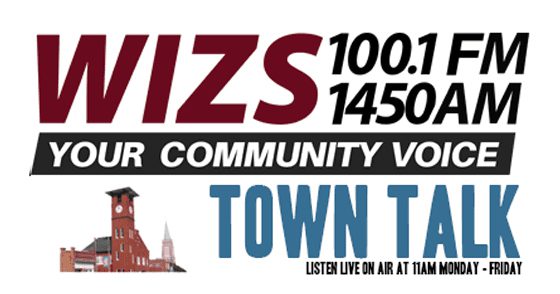A little community in northern Granville County could possibly be getting a unwanted name change, all thanks to newly planted state signage – and Google maps.
North Carolina Room specialist and local historian Mark Pace told the story of Jonathan’s Crossroads, named for the nearby creek of the same name. It seems that the state put up signs incorrectly identifying the area as Johnson’s Crossroads and Johnson’s Creek.
Once it’s in cyberspace, Pace said, the name could stick.
There are many communities all across the Old Granville County area – comprised of what is now Vance, Granville, Warren and Franklin counties – that have interesting name origins. Pace and Bill Harris talked about how some of those places got their names on Thursday’s tri-weekly history segment of Town Talk.
To be sure, many communities were named for prominent families in the area – Gillburg was named for James and David Gill, whose estate stood near the site of the prison there. But Gillburg also was known as Crack Rock, because there had been a school there by the same name.
Once known as Nutbush, Williamsborough in Vance County was renamed for John Williams , who was a member of the Continental Congress and later a U.S. Supreme Court Justice. Townsville honors the family that gave land for the railroad to come through. And Henderson is named for Leonard Henderson.
The community known as Bobbitt, once called Five Points, was named for Patrick Bobbitt.
But Oxford gets its name from the plantation owned by a man called Samuel Benton, who convinced civic leaders in the area known as Merrittsville back in the 1760’s to build the county courthouse on his property. He subsequently went into the real estate business, selling land that would become known as Oxford.
“Sometimes we know the origins of these communities’ names,” Pace said. But sometimes the origin of the name has been forgotten over time.
Seth was the original name for the Granville County area known as Cornwall. But why did its name change? Pace can only presume it’s an homage to the Cornwall in England.
And not too far from Cornwall – between Cornwall Road and Hwy 15 – is the teeny tiny area of Gela. There’s a town in Sicily, Italy with the same name. But how did the name of an old Greco Roman town find its way to rural Granville County?
Then there’s Alert in Franklin County – but if you don’t put the emphasis on the A, folks will know you aren’t from around here.
The location of post offices had something to do with names of towns and communities. Epsom, near the Franklin-Vance line, reportedly got its name when a group of folks were discussing names for the spot where the post office would be located. The area once known as Duke had to change its name because there already was a post somewhere else with the same name. The discussion took place in the community store, and one person suggested Epsom after noticing the container of Epsom Salts nearby.
At that time, it was popular to give towns names that had a positive or progressive spin. And Epsom Salts, with its health benefits, sounded like as good a name as any, Pace said.
The crossroads called Midway in Granville County got its name because it was halfway between Williamsborough and Oxford. But its name got changed to Dexter because someone had a friend with that first name. It sounded upbeat, Pace said, but more importantly, there was no other town called Dexter that had a post office.
Middleburg in Vance County is so named because it was middleway between Raleigh and Gaston, two main points on the railroad.
Leonard F. Dean published a gazeteer in 2011 of the local area that contains a wealth of information, including some of those lesser known or almost forgotten names of communities.
“I don’t reshelve that book,” Pace said. “People use it every day.” He leaves it along with an atlas for library patrons conducting research of one sort or another.
The gazeteer contains information about family homeplaces, along with references to the many creeks that often are mentioned in deeds to denote property boundaries.
Dean’s book is titled “Granville County North Carolina Gazetteer.”
CLICK PLAY!
